Justification of the Doubter
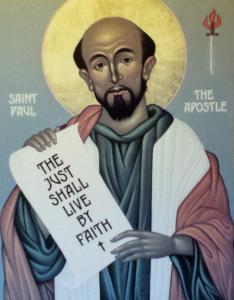
Do you have those moments of doubt? Those moments when you doubt that God exists. Oh, yes, we learn from the Bible all kinds of wonderful things about the God who loves us. But what if there is no such person as God? What if there’s just nothing beyond? What if your or my life is nothing but a dying ember in a fire about to be extinguished?
To make matters worse for the Christian, we get told that we cannot be saved by this God if we don’t believe. We get told that if we doubt, then our faith relationship to God gets broken and we fall into the abyss. So, we try to will ourselves to believe God exists. But this doesn’t work. Does it?
What if God understands us in our doubt and graciously keeps us in relationship even with our doubt?
Paul Tillich on Doubt within Faith
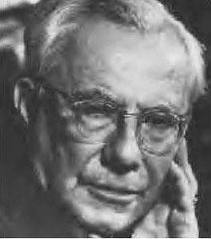
My favorite theologian as a teenager was Paul Tillich (1886-1965). In his widely read book, Dynamics of Faith, he said faith and doubt come together like a hot dog and mustard. Well, something like that. “Living faith includes the doubt about itself” (Tillich 1957, 102).
So, a living faith actually includes doubt within it. “Serious doubt is confirmation of faith. It indicates the seriousness of the concern, its ultimate character” (Tillich 1957, 22). If you or I seriously doubt, it tacitly means we are committed to truth. We want our belief to be grounded in truth, not falsity. Unconsciously, we have ultimate trust in the truth. And, paradoxically, God’s Spirit is truth. “The Spirit is the truth” (1 John 5:6).
Divine Justification of the Doubter: Samuel Andrew Shearn
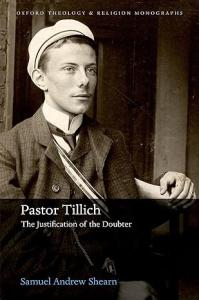
Samuel Andrew Shearn has recently published a book on this topic, Pastor Tillich: The Justification of the Doubter. Here’s the key point: “Christ’s presence with the despairing sinner covers not only the sin but the sinner’s modern inability to believe the truth” (Shearn 2022, 219). What does this mean?
To figure out what this means we need to take a detour to the premodern past, to Wittenberg’s Martin Luther (1483-1546).
Divine Justification of the Doubter: Martin Luther
Daniel J. Peterson has written a fine book review that vividly shows just how Tillich borrowed Justification-by-Faith from Martin Luther and applied it to your and my modern experience of doubt. So, what’s the connection?
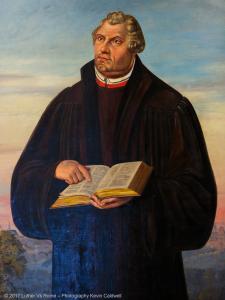
Luther experienced a breakthrough by God’s grace when he was overcome by guilt for his own sin. It was the Bible that made the difference. He studied the letters of Paul, who teaches that salvation comes from God by grace alone. Nothing we do can make us right with God. This explains why God meets and embraces us unconditionally through Christ. This wondrous discovery is often called Luther’s ‘tower experience’, because it allegedly occurred while he was reading scripture in the tower of the monastery where he was living. The Word of God brought Luther immense relief from the debilitating fear that he could never merit God’s favor on his own. Further, it led Luther to seek the same for his parishioners by preaching to them the good news that God had freed them in Christ from having to earn God’s love through works of penance. Instead, good works should serve as a response born of gratitude for the unmerited love God offers us. This, says Peterson, is what initiated the Protestant Reformation (Peterson 2024, 1).
Divine Justification of the Doubter: Paul Tillich
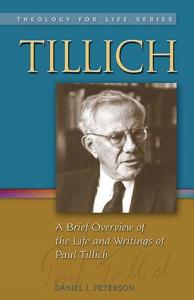
“When Tillich took to the pulpit 400 years later, he also saw the need for an intervention among his parishioners based upon a similar ‘breakthrough’,” Peterson reports (Peterson 2024, 2). Christ meets the doubting sinner in the darkness of despair with a message of double grace: “You need do nothing, you need not hold anything to be true’” (Shearn 2022, 14). God’s grace covers our doubt.
We can imagine the relief such a message brought to the members of Tillich’s listening congregation who earnestly found themselves trying to believe, only to realize they could not convince themselves that ‘God exists’ simply by an act of will. Shearn and Peterson describe this as a moment of rescue for those of us who doubt. “But in this moment of rescue, Christ’s presence with the despairing sinner covers not only the sin but the sinner’s modern inability– the inability to believe the truth” (Shearn 2022, 219).
“The connection Shearn postulates between Luther and Tillich should thus be clear: both men not only sought relief from the burden placed upon them and their contemporaries thanks to graceless expressions of the Christian faith. They found it in the breakthrough they experienced of grace which they subsequently applied to the differing spiritual predicaments of the times in which they lived. By letting go of the desire to make oneself acceptable to God through morality or belief, a new encounter with the divine could emerge, the kind that led Luther from hating God to loving God” (Peterson 2024, 2).
Conclusion
If you like me find it impossible to simply will belief, then the part of the gospel that should impact us is that we remain members of God’s family by grace rather than belief.
One of my favorite seminary professors was Fred Meuser. Dr. Meuser offered some advice I’ve kept. When plagued by nagging doubt, he said, “first doubt your doubt. Then, doubt your faith.”
The volleyball we play in our minds between faith and doubt is a game that will not end until we see God face to face (1 Corinthians 13:12).
ST 2021 Justification of the Doubter
ST 2005 What is Justification by Faith?
▓
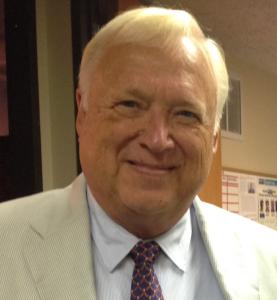
For Patheos, Ted Peters posts articles and notices in the field of Public Theology. He is a Lutheran pastor and emeritus professor at the Graduate Theological Union. His single volume systematic theology, God—The World’s Future, is now in the 3rd edition. He has also authored God as Trinity plus Sin: Radical Evil in Soul and Society as well as Sin Boldly: Justifying Faith for Fragile and Broken Souls. He recently published. The Voice of Public Theology, with ATF Press. See his website: TedsTimelyTake.com and Patheos blog site on Public Theology.
▓
References
Peters, Ted. Sin Boldly! Minneapolis MN: Fortress Press, 2015.
Peterson, Daniel. “Book Review of Pastor Tillich: The Justification of the Doubter.” Scottish Journal of Theology , 2024: 1-2; DOI: https://doi.org/10.1017/S0036930624000176 .
Shearn, Samuel Andrew. Pastor Tillich: The Justification of the Doubter. Oxford: Oxford University Press, 2022.
Tillich, Paul. Dynamics of Faith. New York: Harper, 1957.














